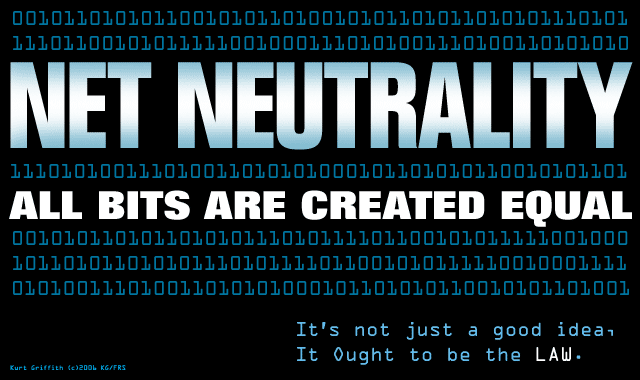Tuesday, December 05, 2006
Sunday, December 03, 2006
Wednesday, November 29, 2006
Saturday, November 25, 2006
Tuesday, November 14, 2006
Wednesday, November 08, 2006
Thursday, November 02, 2006
La judicatura defiende al consumidor
Antes de la era digital, las sociedades de autores cobraban su canon a los medios de comunicación, bares, restaurantes, radios, etc, es decir, a los lugares que radiaban música y que se lucraban, supuestamente, con ello - aumentando así su clientela.
Nunca en esos tiempos las sociedades de autores le cobraban un canon a los consumidores, a los compradores, a los ciudadanos de a pie, a las gentes que no se lucraban con sus productos. Y eso era lógico y tenía sentido. El hombre de la calle, o la mujer, iba a una tienda de vinilos, después de compactos, y adquiría, compraba, pagaba, por un disco, que se llevaba a su casa, no para lucrarse, sino para gozar de la música que había comprado. Este mismo individuo, podía hacerse tranquilamente una copia de su vinilo o de su compacto en cinta magnética, usando su magnetofón o su grabador de cassettes, para escuchar la música que habia comprado, en el radio-casette de su coche, o en el reproductor de cassettes de su apartamento de verano, o en el de su oficina, o en su walkman unos años después. Y hasta aquí todo estaba muy bien.
Pero ahora, en la era digital, lo que antes se podía hacer sin pagar peaje, sin pagar impuestos: la copia privada, ahora no se puede hacer sin pagarle a las sociedades de autores el mismo canon que les cobran a los medios de difusión que funcionan por el lucro. Ahora, al consumidor final, se le supone un lucro monetario que no se produce, que no existe, por el solo hecho de hacerse una copia privada del producto comprado, un acto tan antiguo como el magnetófono.
Las sociedades de autores justifican este cambio tan perjudicial para el consumidor con la idea de que el consumidor llega a prescindir del producto original de fábrica y se conforma con copias privadas hechas a partir de discos propiedad de sus amigos o conocidos, cosa que ya ocurría antes de la era digital, cuando muchos consumidores se bastaban con tener las cassettes-copia de ciertos productos musicales, sin comprar los discos originales, de mayor calidad audio, porque simplemente no les interesaban hasta tal punto como para comprarlos.
Como la copia digital de un disco compacto es idéntica en calidad audio al original, evidentemente la compra del original pierde cierto interés, a no ser que el libreto que viene con este valga la pena, o quizás un cupón de descuento para ir a un concierto, y otros extras que las discográficas incluyan con el disco compacto original para hacer la compra realmente atractiva, por ejemplo: un autógrafo genuino del artista.
Pero la situación está en que el consumidor paga un canon que antes sólo pagaban las emisoras y empresas que se lucraban con la música radiada, cuando este consumidor no se lucra para nada. Y lo peor de esto es que el consumidor que paga este canon puede ser un individuo que jamás se hace copias privadas de discos musicales, ni de los propios ni de los ajenos. Puede ser un señor que usa soportes de memoria digital exclusivamente para guardar sus fotos, para guardar sus documentos, para guardar sus videos, etc, es decir, para guardar obras de su propia autoría, o para guardar archivos simplemente privados, ajenos al mercado; en todo caso: que no tienen nada que ver con los autores cuyos intereses gestionan las sociedades de creadores e intérpretes musicales.
Por eso es muy interesante que la judicatura en España comience a reconocer: (1) Que no hay delito en realizar copias privadas digitales de discos musicales de propiedad propia o de propiedad ajena, es decir, prestados. Porque la copia privada y la circulación libre de copias digitales de obras musicales, no atenta contra el negocio de los artistas sino que les hace propaganda gratuita, y tampoco atenta contra el negocio de los sellos discográficos, porque ellos venden la música con una presentación exclusiva y unos extras que hacen su producto, que es un objeto material, atractivo. (2) Y que no hay razón ni justificación alguna para que el consumidor pague un impuesto sobre todos los soportes de memoria digital que adquiere, bajo la erronea presunción de que los va a usar para archivar copias de obras musicales. Tal impuesto, además, resulta abusivo, indiscriminado y extraordinariamente oneroso para el consumidor, produciéndole un efecto de rechazo hacia la industria musical y sus productos, en lugar de incentivar la compra de los mismos.
Por otra parte, el tal impuesto, o canon, clama a los cielos una inspección del fisco, porque las sociedades de autores no explican ni transparentan cómo distribuyen, los cuantiosos ingresos que les genera, entre sus socios miembros. Puesto que no hay manera de saber cuántas copias digitales privadas se han grabado de las obras de un intérprete musical determinado, la sociedad que defiende sus intereses no tiene manera de abonarle el estipendio correspondiente derivado de ese tráfico digital, y si le abona una cantidad no puede saber si le paga demasiado o demasiado poco, ya que ha de repartir proporcionalmente esos ingresos entre sus representados. Este factor de oscuridad, implícito en la gestión del canon una vez cobrado por las sociedades de autores, lo delata como un mecanismo de atraco al ciudadano de a pie, para lucro de unos gestores, sin que los mismos representados tengan arte ni parte; es decir, el canon funciona en la práctica como un botín de pirata.
Tanto es así que, ya que en la era digital todos somos autores: de fotos, de videos, de textos, incluso de tonadillas, podríamos ir todos los ciudadanos a inscribirnos en las sociedades de autores, para que al final del mes nos pagaran lo que nos pertenece a cuenta (o a cuento) del cobro del canon sobre soportes de memoria, repercutido por tráfico de archivos digitales copiados de un lado a otro de la red (o de la agenda personal de contactos).
Por eso, viendo lo absurdo del caso, de todo lo que tiene que ver con la opaca gestión de las sociedades de autores musicales, con sus políticas de piratería contra el consumidor que les da de comer, son muy buenas noticias las que nos da la prensa sobre los jueces de España fallando a favor del consumidor, a favor de la circulación libre de copias digitales privadas de obras musicales (y videográficas, y fotográficas, y literarias), y contra el canon cargado a discos duros, a cd-rom's y dvd's vírgenes, a toda clase de chips de memoria, que no tienen porque ser usados para acumular copias de obras musicales, ¡y aunque así fuera!. Fallos judiciales que dan a entender que el negocio musical debe ir por otros derroteros: sin interferir con la facultad de difusión libre y gratuita de la cultura por medios digitales. Que hagan su negocio como siempre: con sus productos materiales, y con sus actividades en vivo. Pero que dejen en paz al mundo digital, que no es su enemigo sino su mejor escaparate.
Wednesday, November 01, 2006
Thursday, October 26, 2006
Friday, October 20, 2006
Monday, October 16, 2006
Tuesday, October 10, 2006
Independent Voices
Sunday, October 08, 2006
Friday, October 06, 2006
Feed Readers
After the death of Bloxor, I am testing other feed readers. Luckily, Google comes in time with its new version of Google Reader. The good of this one is that you can access your news and blogs feeds from everywhere in the planet, as long as you have [a broadband] Internet connection. Also, subscribing to feeds on the fly, while you browse the world wide web, is extremely easy: Google provides a bookmarklet that does the job for you with no typing long URLs. Alternatively you can take the type-the-xml URL route on Google Reader to get a subscription. Google Reader understands more syndication formats than any other feed aggregator/reader out there. The bad thing about Google Reader is that if the blog you are watching does not provide the full entries to online readers, you are stuck with the header and a few lines and need to jump to the source site to read the rest of the article or even to see the full sized images. But for blogs that provide full text entries, Google Reader is the best option.
To remedy the full vs part entry issue, I also am using Wizz RSS, an aggregator/reader that you need to install as a Firefox {free} extension. The good thing of this one is that your feeds open the real deal, the original article/entry you are wanting to read, and they open inside the very browser tab you are using at the moment. Also, another good point is that you can import to Wizz RSS your whole Google Reader list of feeds, exactly as they are sorted in folders (labels). If you happen to change your subscriptions on Google Reader, it's easy to delete your subscriptions on Wizz RSS and import the new list again. If you want Wizz RSS to follow you, from computer to computer, then you need to install it in each machine and repeat the import trick from Google Reader (this is what I do), or open a free account in the Wizz RSS server (I have not tried this).
Next aggregator/reader that I use is Netvibes. It is also limited to headers and few lines if the source site does not allow full entries, but is super fast in comparison with Google Reader. I don't use Netvibes for a massive reading of tons of blogs, but for the essential daily reading. I leave Google Reader for more lengthy reading sessions, when I want to explore the whole list of my subscriptions and what's new there. And if I find myself limited by Google partial entries, I go to Wizz RSS and enjoy the full entry ride: I use it most of all for photo-blogs, since I prefer to see full sized images than the little thumbnails offered, if at all, by the online readers.
So, here you have it, my take on feed readers is a bit of Netvibes, a lot of Google Reader and some quality touch of Wizz RSS.
Saturday, September 30, 2006
Thursday, September 28, 2006
Wednesday, September 27, 2006
Friday, September 22, 2006
Wednesday, September 20, 2006
We think the same, Cory

"I believe that we live in an era where anything that can be expressed as bits will be. I believe that bits exist to be copied. Therefore, I believe that any business-model that depends on your bits not being copied is just dumb, and that lawmakers who try to prop these up are like governments that sink fortunes into protecting people who insist on living on the sides of active volcanoes. Me, I’m looking to find ways to use copying to make more money and it’s working: enlisting my readers as evangelists for my work and giving them free ebooks to distribute sells more books. As Tim O’Reilly says, my problem isn’t piracy, it’s obscurity. Best of all, giving away ebooks gives me lots of key insights into how to make money without restricting the copying of bits. It’s a win-win situation." -- Cory Doctorow (site).
Tuesday, September 19, 2006
Nada parará la cultura digital
Querido Teddy: No se pueden poner puertas al campo. Los archivos digitales van a seguir circulando entre la gente, distribuyéndose gratuita y libremente. Lo que teneis que hacer (los autores y editores) es ofrecer productos atractivos que la gente quiera comprar en las tiendas, a precios razonables; cosas que un archivo digital no les pueda dar. También debeis concentrar vuestra energía en cobrar del intérprete, que es el que se lucra de vuestras obras (de autor), cuando ofrece conciertos. Toma por ejemplo los cines: mucha gente sigue yendo a ellos para disfrutar una película a pantalla panorámica, con sonido extraordinario, en plena oscuridad... todo eso que es una experiencia única que un film en DVD o en archivo digital no les puede dar. Haced lo mismo con los conciertos, promoved audiciones de alta fidelidad cobrando entrada. Sed creativos, caramba! Puesto que vuestro negocio no podrá jamás ni parar ni aprovecharse del fenómeno digital, teneis que apostar fuerte por el negocio analógico, off-line, en vivo, por el producto material, etc, es decir, por todo lo que no es digital, ni duplicable, ni reproducible.
Tuesday, September 12, 2006
Friday, September 08, 2006
P2P y derecho a la cultura, libre y gratuita
7 de Septiembre de 2006
Sentencia absolutoria en España por intercambio de archivos en Internet
via David BravoMi comentario:
Los archivos digitales que contienen música, textos, imágenes, películas... deben ser gratuitos, porque de hecho carecen de coste de duplicación, y porque la cultura es un bien universal.
Mucha gente confunde "música" con "archivo digital", y "bit" con "átomo".
Está muy bien que un CD editado por una discográfica con todo lujo de carátula y libreto, tenga un precio en las tiendas, porque se está vendiendo un objeto fisico, un producto material, hecho de átomos. También está muy bien que unos intérpretes musicales den conciertos y cobren entrada: están ofreciendo música en vivo, algo imposible de experimentar de otra manera que estando allí. Los autores de los temas musicales pueden cobrarles derechos a los intérpretes, cada vez que toquen su música y/o letras en concierto. También les pueden cobrar esos derechos a las discográficas, por cada CD material (hecho de átomos) que se venda.
Pero a diferencia de lo anterior, los archivos digitales están hechos de bits. Esos bits son fácilmente duplicables y sin costo apreciable. Los legisladores deben tolerar la circulación libre y gratuita de archivos digitales, como potente herramienta para extender la cultura a todos los ámbitos de la sociedad.
Si al lado de esa circulación libre, P2P, de archivos digitales, hay quien pone una tienda para venderlos (tipo iTunes, Unbox, etc), pues que pague derechos e impuestos a quien corresponda y que se atenga a los correspondientes permisos.
Siempre habrá, como usuario, quien prefiere ir a comprar un producto físico a una tienda física, o un producto virtual a una tienda virtual, y en ese sentido adelante con las iniciativas de negocio dentro de la ley. Pero debe permitirse legalmente que quien se quiera tomar la molestia de pescar una copia privada gratuita en las profundidades de la red, lo pueda hacer amparado por el sacrosanto derecho a la cultura libre y gratuita.
Thursday, August 31, 2006
Pirate Party: Manifesto 2006 (Introduction)

Preface
The election program of the Pirate Party consists of various nautical charts, describing what we want to do in each of the areas within the Pirate Party policies. These charts are divided in sections based on deadline and what is to be done on a Swedish and on a European level.
As an introduction to these charts, we describe our ideology and our main policies.
Protected integrity in an open society
The development of technology has made sure Sweden and Europe stand before a fork in the road. The new technology offers fantastic possibilities to spread culture and knowledge all over the world with almost no costs. But it also makes way for the building of a society monitored at a level unheard of up until now.
In no time, the monitoring state has advanced its positions strongly in Sweden. This development threatens equality and safety before the law, and nothing indicates that it even adds to security. The Pirate Party believes this is the wrong way to go.
The right to privacy is a corner stone in an open and democratic society. Each and everyone has the right to respect for one’s own private and family life, one’s home and one’s correspondence. If the constitutional freedom of information is to be more than empty words on a paper, we much defend the right for protected private communication.
The arguments for every individual step towards a monitoring society may sound very convincing, but we only have to look at the recent history of Europe to see where that road leads. It is less than twenty years since the fall of the Berlin wall, and there are numerous other terrible examples. To claim that it’s only those with something to hide that has anything to fear is simply lacking knowledge of history, and lacking courage.
We have no problem with police monitoring and spying on suspected criminals. That is exactly what the police is suppose to be doing. But routinely monitoring ordinary citizens hoping for something suspicious to turn up is not only a gross violation of the privacy of honest people. It is also a waste of valuable police resources.
We have to pull the emergency break on the train running towards a society we don’t want. Terrorists can attack our open society, but only governments can disband it. The Pirate Party wants to ensure that this doesn’t happen.
Private communication and file sharing
A driving force behind the current monitoring hysteria is the entertainment business, which wants to prevent people from file sharing copyrighted material. But to achieve this all private communication must be monitored. To know what ones and zeros make up a movie, the ones and zeros has to be analyzed. It is the same sort of ones and zeros that is sent, regardless of if it makes up a piece of music, or a letter to a doctor or a lawyer.
Therefore society ha to choose: do we want a possibility to trustingly communicate over the Internet to exist?
If your answer is yes, it means that also those that shares copyrighted material can use these possibilities.
If you answer is no, it means that you abolish the right of information, the right to mail secrecy and the right to a private life.
There are no other answers.
It is not possible to claim that society should allow mail secrecy for certain purposes, but not for others, since it is impossible to separate the different cases without breeching the secrecy. It is the same types of ones and zeros being used, and only by opening the message, it is possible to see what it contains.
The current copyright legislation can not be combined with freedom of information and protected private communication. Since the fundamental principles of the open, democratic society is more important than conserving old business models within the business of entertainment at all costs, copyright has to fold.
But this is not negative. A reformed copyright legislation, expressing a balance between different interests in society instead of being an order form from the large media companies, has its own benefits. It is a possibility for Sweden and Europe, not a threat.
The spreading of culture and knowledge is a positive thing
Thanks to the Internet it is today possible for everyone with a computer to take part of a fantastic treasure of culture and knowledge.
Instead of being limited to a cultural canon decided from above, the youths of today has access to the music, theater and pictures of an entire world. This is something we should embrace, not something we should try to forbid. File sharing is good for society and its people.
All non-commercial acquiring, using, bettering and spread of culture should be actively encouraged. The Internet is filling the same function today as popular education did a hundred years ago. It is something positive and good for the development of society.
The copyright legislation must be changes so that it is made perfectly clear that it only regulate use and copying of works done for commercial purposes. To share copies, or in any other way spread or use someone else’s work, should never be forbidden as long as it is done on an idealistic basis without the purposes of commercial gain.
Unfortunately, the legislation has developed in quite the opposite direction. On July 1, 2005, a million ordinary Swedes were suddenly turned into criminals over night, simply because they download movies and music. This doesn’t only hurt our possibilities to take part of culture. In the long run it undermines the trust of our entire judicial apparatus. This development has to end.
In a similar fashion, patents are used to inhibit the spread and use of knowledge, which hurts society as a whole.
Medical patents make people in poor countries die for no reason. It twists the priorities in research and makes the costs for medications a problem in every health care budget.
Software patents inhibit technical development within the info tech area and presents a serious threat against small as well as mid-sized businesses and individual developers. They run the risk of putting the power over the Internet completely in the hands of a small number of multi national businesses.
We want to release knowledge, and have specific suggestion on how to avoid the negative consequences that the patent system means.
Sweden and Europe has everything to gain from choosing the path of openness.
No other issues
The Pirate Party does not have any policies on issues that traditionally concerns the left-right scale, or any other issues outside of our program of policiies.
We particularly does not concern ourselves with the division of wealth. We are not after dividing money between different groups in society. None of our propositions costs any money for the state, and several of them may potentially save money in the budget. Because of this, we can place ourselves outside of the struggle concerning the budget, with good faith, and leave it to the old parties.
We are ready to support a social democratic as well as a non-socialist government, we claim that both Göran Persson as well as Fredrik Reinfeldt are well capable of taking the role as the head of government in a satisfactory manner. We do not believe that the differences between them are that big, in reality, and every one of us are ready to live with any of them as our prime minister.
The only thing that concerns us, is the protection of our open society and democracy, that the march towards a controlled society is cancelled, and that culture and knowledge are set free.
Our goal is to reach the parliament and being in a position where we can tip the scale. If we succeed in this we will talk to both Göran Persson and Fredrik Reinfeldt alike. We will explain what we want, and point out that our policies in no way differs from either traditional social democratic policy or traditional liberal/non-socialist policy.
After that, we will support the person aspiring to form a government, who is ready to make the best deal with us on our policies. On any matter outside of our policy statement, we will support and vote for the current government, no matter what we believe individually on different matters.
Due to the fact that we do not have a view on everything on this earth, but concentrate completely on the issues where we have formed a policy, we can promise a result if we make it to the house of parliament in a scale-tipping position. That makes us unique in Swedish political history.
We are the only party that will never deal away our free and open society for the benifit of any other issue or interest.
More on the Pirate Party tipping the scale
The Pirate Party does not take a stand in issues generally associated with the right or left, or any other issues that are not part of our declaration of principles. We are ready to support a socialdemocratic as well as a non-socialist government. The only thing that concerns us is that the march towards a controlled society is cancelled, and that culture and knowledge in society are set free,
On of the factions within Swedish politics has really anything to lose in reality by satisfying more or less all of our demands. Neither Persson nor Reinfeldt have any personal interest in keeping the absurdity that is current copyright legislation. The fact that things look like they do, is primarily due to lack of interest in the area, and that they have therefore allowed the ‘experts’ (i.e. the lobbyists of the entertainment industry) have their way.
In a situation where they can gain position of forming a government by striking a deal with us in an issue that they, themselves, believe to be less important, there is every reason to believe that they will be eager to find a solution.
But in either case, there are three possible scenarios:
1) One of the factions agree to our demands, and the other does not. Then we will choose the faction that agree with us. Whether this is the red faction of the blue faction is of no concern for us. As long as we see that they are doing their best to seriously run our issues, we will support the government in all other issues as well, without questioning.
2) Both the factions agree to our demands. If there are differences of nuances making one faction looking slightly better than the other, we will choose this faction. If both are exactly as good, we will support the faction with the more votes. This way we won’t influence the balance between the factions in Swedish politics. As long as the government is running our issues, we will support them in all decicions, just as in the first scenario.
3) Both the factions refuse to meet our demands. This is the more complicated case, but we can handle this one too. Initially we will support one faction, and make a government possible. Most likely this will be the ones with the less votes, so that the others, the ‘victors’, will feel that they have lost power they were entitled to. They can, however, not do much about it, since we will support the government without questioning in anything that does not involve our principles.
When the “victors” are safely placed in the penalty box of opposition, we start our businesslike, low-voiced conversations with them, until they realize that our proposals are not, in fact, that dangerous, and that they can only win from working with us. When they have seen our arguments in the glow of the miraging governmental position for a while, there are good reasons to believe they will agree with us. This is when we will call for a vote of non-confidence and change the government. After that, the Pirate Party with support the new government without questioning, in all issues, as long as the government runs our issues forcefully, just as in scenario 1 and 2.
This is our entire strategy. This way we can guarantee that our policies will have a break-through.
Questions and answers about our scale-tipping strategy
- How do we handle parliamentary votes that do not include any issues that the Pirate Party runs?
We will support the government in office, no matter what our personal opinions might be.
- Will the party try to make deals with other parties (”if you vote for us on issue “X” and “Y” we will help you with “Z”)?
No, we will talk to the party in office. As long as they do as we want in our issues, we will support them in all other matters. We do not wish to try shopping a la carte from different parties (if we do, we will only be shoved aside). If the government stops this manner of cooperation, we will change the government, but as long as we tolerate a government, we are completely loyal to them in all other issues, those not in our program.
- …or not vote?
If the government needs our support in the parliament it can count on it. We will not cancel our votes if this would affect the turnout against the government.
- …or let the individual MPs decide for themselves?
Under no circumstances. The day we start voting after personal preference, we have nothing more to offer the other parties in a negotiation. If this happens, we can no longer benefit from our position, and have no longer any means to influence the policies that is the closest to our hearts.
- But in the third scenario (that is if none of the factions wants to offer anything at all, even though we are tipping the scale), why would we want to support the government? We should obviously be able to offer them to vote, from their perspective, in an unseemly manner? It seems a bit awkward to give them what they want first (by support) and then trying to negotiate.
The idea in the third scenario is that we help a government form, that we ourselves aren’t happy with, but who we choose to support indefinitely anyway. Principally only to tease the opposition, in other words. When the opposition has spent a few months being grumpy because they can’t form a government even though they think they won the election, they have two alternatives to choose from. They can either stay grumpy for the next four years, or they can start talking to us to find out if they can “talk sense in to us” and have our support.
The big prize is the government, both for the left and the right, and they have nothing to lose from having a dialogue with us. With that, we’ve managed to initialize a discussion with the opposition concerning these issues. Since our proposals does not, in any way, clash with the basic values of neither the left wing nor the right wing block, and since they are good proposals, objectively, for Sweden, there is no reason to believe that they would prefer to stay grumpy for the next four years instead of making a deal with us.
But until they have done so, we will consistently vote with their opponents (i.e. the government that we support even if we think they are no good). That way the opposition will have an even bigger reason to strike a deal with us, even more so than if we voted without a clear direction. The more votes the opposition loses concerning health care / education / taxes / disbanding of military units, the more eager they will become to have a change of government.
The government that is in power even though we think they’re no good will perhaps feel happy to be able to carry through whatever they want without giving us anything in return. But they will know that all it takes for them to lose office is one word from the opposition. So the joy they’re feeling will hardly be very deep or long lasting.
The point of helping a government to form even if none of the players gives us what we want is that we want to add to stablity and let things calm down a bit. One can’t postpone negotiations about the government more than a couple of weeks after the election. If we can’t have a government that we want because it promises to see our points and work for them, it’s still better to help a government we don’t like. The country needs a government.
Parliamentarism is such an ingenious system because the parliament can throw out the government in office whenever a majority of its members wish. The leader of the opposition will know this, no matter if his name is Persson or Reinfeldt. So why would he not talk to us to see if he can create a majority for a vote of no confidence? And why would he not meet our demands when he has had time to think about them, and realize that they do not oppose his own ideology or any core party issues in any way?
If we make it to the parliament, but can not tip the scale
Even if we would not reach a position where we can tip the scale, we can still do a lot of good in the standing committees. Much of the malfunctioning legislation that is voted through is often voted through because the established parties do not understand the Internet and all the new technology. They have not thought through the consequences of building a controlled society to conserve the old instead of embracing the possibilities we have in our time.
They often blindly trust what lobbyists and civil servants at the departments tell them to think. They do not see these issues as important enough to put down time getting an informed opinion.
We can hopefully change this, simply by being part of the committees, pressing the fact that these are important issues. Neither social democrats nor moderates really want to make it illegal for small businesses to develop new software, after all, or put all Swedish youths in prison. The fact that they still make or argue for laws that has these consequences is mostly due to lack of knowledge. We can supply the standing committees with a well needed competence and a valuable perspective.
- If we can’t tip the scale, will we try to negotiate about individual issues?
In this scenario, negotiations will hardly be our most important tool, simply because we wouldn’t have much of a negotiation position. If they can create a majority without us, they won’t need to negotiate with us at all.
But this does not mean that all would be lost. We could still add a lot, simply by being constructive in our committee work. Much of the worst legislation is due to the fact that the established parties lack knowledge and interest in our issues.
- …or will we simply cancel our votes?
In a situation where there is a parliamentary majority without us, it wouldn’t matter how we voted, and then it doesn’t make a difference. The simplest thing would be to simply not vote.
- …or do we present bills that are promptly turned down?
We might want to present bills as part of our work to clarify the choices our society has, but the purpose then would only be to raise these issues. We would probably have to spend more time discussing the pros and cons of the bills that are about to be clubbed.
- …or should we simply stay home with our kids?
Participating in the committees in a constructive manner aside, there will be much work to be done on the European level. Some of the decisions we want carried through can only be made in Brussels. Therefore we have all reason to do what we can to support our sister parties in other countries, and help them get started. So there might not be much time for vacation, even if we don’t get to support a government.
Monday, August 28, 2006
Wednesday, August 23, 2006
Tuesday, August 22, 2006
Twango
 Twango is what flickr should have been, if conceived for sharing photographs with friends, family and the world. Welcome Twango, a free multi media hosting site, offering unlimited storage for videos, photos, audio, and other media. The only limitation is 250Mb/month upload rate, which is a decent amount for social amateurs and casual point and shooters. There are a lot of options for uploading and for sharing. Your photos can be public or private, by sending them to public or private channels (any photo can belong to more than one channel). You can contribute to public channels created by other users if they set you as participant, or create your own channels, public or private, and set them own managed or open for your chosen people upload participation.
Twango is what flickr should have been, if conceived for sharing photographs with friends, family and the world. Welcome Twango, a free multi media hosting site, offering unlimited storage for videos, photos, audio, and other media. The only limitation is 250Mb/month upload rate, which is a decent amount for social amateurs and casual point and shooters. There are a lot of options for uploading and for sharing. Your photos can be public or private, by sending them to public or private channels (any photo can belong to more than one channel). You can contribute to public channels created by other users if they set you as participant, or create your own channels, public or private, and set them own managed or open for your chosen people upload participation.You can use a batch uploader from your computer, or send your media files as attachments via email, to specific channel addresses or to your media library. Also, you can add a note within your message for your friends, family, contacts, to invite them to access your media files: photos, videos, whatever. They do not need to be members of Twango, they just click the preview sent to them and automatically jump to the Twango site to enjoy the full version of your files, even if the files are in a private channel, since you invited them to have access (or even you may have invited them to contribute with uploads).
There's more: photos are stored at full resolution and can be downloaded back, or you can send any size versions as direct links to forums, or post them on websites. You can edit photos, rotate them, change the date, check the EXIF data, add keywords, descriptions...! Of course there's the possibility of interaction among users, to leave comments on public channels, and all the other things that are usual in a photo/video/audio sharing community.
This is what flickr could be if was really, but really, sharing-oriented. Ah!, the slide show is very cool too!
Twango: highly recommended.
Monday, August 21, 2006
Dare to think!
I don't like Apple, because its walled garden business policy.
But this video is beautiful. Kudos for their ad agency.
Be a center of the Power
SOONER OR LATER YOU WILL CREATE
A CENTER OF POWER IN YOURSELF
What man is there who has complete control of his imagination and attention? A controlled imagination and steadied attention, firmly and repeatedly focused on the idea to be realized, is the beginning of all magical operations.
If you persist through weeks and months, sooner or later you will create a center of power in yourself. You will enter a path all may travel, but few do journey. It is a path within yourself where your feet may falter in shadow and darkness, but will later be made brilliant by an inner light.
Special gifts, or genius, is not bestowed on any individual, but won by persistence and practice of meditation. If you persist, the dark caverns of your brain will grow luminous and you will set out, day after day, for the hour of meditation as though to keep an appointment with a lover.
THE MAGIC OF IMAGINATION
By Neville
Copyright C Estate of Neville Goddard
Edited By Margaret Ruth Broome
No intrinsic message
Other people talking about this subject:
Sunday, August 20, 2006
Beta Blogger
It will take me some time to add the proper labels to all my previous posts.
Keep checking!
Saturday, August 19, 2006
Call yourself a producer
Now, today, to make it practical, as we did in the second chapter of my latest book, I treated it as a drama and the Four Mighty Ones in you – play with it. Call yourself a producer. You are going to produce a play – and the producer in man only suggests the theme. He goes no further. Wouldn’t it be wonderful, (and you name it), were I, (and you name it), successful, happy, and you name a certain state, but you go no further as the Jod. He only suggests the spirit for he just takes the wind and that he binds in his fist. He only recommends the motive, the little theme.
The second One now, in man that works out that theme is the author, and the author in man is wonderful inner creative power that can take the theme of success and work out the last scene, which implies the theme is realized. What would I do were I successful? What would I see? What would I say? How would I act? Well, then construct one little theme or little scene, which implies the fulfillment of my desire. That is now the second mighty one’s work.
The third mighty one’s work in man is the director. The director in man is man’s controlled attention so that my attention must be completely absorbed in the single idea, the idea that implies the fulfillment of my wish.
Now, the fourth one is the one whose form is like unto the son of God. Now, who is the fourth one in man that will now do it? Man’s Imagination. Man’s real being is a splendid Imagination. An Imagination has form, but man does not understand and man doesn’t believe it, but the real being is Imagination. It can be anything in this world, and so he puts himself through the paces by simply inwardly enacting the drama that he himself has constructed, and whatever it would be that he has constructed, which drama implies the fulfillment of his theme, he inwardly acts it over and over and over again until it takes on the tones of reality. When inwardly he feels natural in the part that in which he is now self-rehearsed, the curtain will rise and he will see it there. He will cast the inner drama on the screen of space and he will see moving on the screen of space all the characters necessary to complete the play. He doesn’t have to consciously direct one of them. They become relevant to his theme, and because they are relevant they are drawn into the drama without their knowledge, without their consent. Any change in the drama must take place within him and not them, so he never appeals to one on the outside to change. He leaves them just as they are and he rewrites the play within himself and changes the end. As he changes the end, the whole cast are cast in different roles and have moved back into his world to complete his play.
So the four Mighty Ones in man may be likened to the producer, the author, the director, and the actor – the four most important members in the production of a play, and this is a play. The whole vast world is a play – this is a stage – but this actual movement and the actual drama is not taking place out there. It has been conceived, dramatized, rehearsed and completely enacted elsewhere. When you see it here, it is as much a screen as when you see a picture on this screen later on today. You cannot appeal to the actors to change; they cannot even hear you. Any change in the script must take place where it first originated, not here. This is only a screen, so as Blake said, “All that you behold, though it appears without, it is within in your imagination, of which this world of mortality is but a shadow.”……..
Now you can try it and see if I have told you the truth this morning. See if you cannot conceive of things and identify yourself with it. Remain faithful to that association and see if that association will not result in a corresponding state in the outer world. Boldly assume that you are the one that you want to be. Remain faithful to the assumption and see if it will not establish itself and become hardened into fact, and you will know then the one who really establishes all the ends of the earth, for your earth will be anchored down and bearing witness of the man, the woman, you have conceived yourself to be. Then you will be free of the greatest tyranny in the world, and the greatest tyranny in the world is the belief in the secondary cause. There is no second cause. There is only first cause, and the cause of everything is the Name, but when you don’t know it, well then, you blame another and I cannot conceive of a greater tyranny than the belief in a second cause. There is only one God, expressing himself as Four Mighty Ones within the individual.
THE FOUR MIGHTY ONES
Lecture #317 − Neville 06/17/1956
Thursday, August 10, 2006
Monday, August 07, 2006
Friday, August 04, 2006
Saturday, July 22, 2006
Tuesday, July 11, 2006
Monday, July 10, 2006
Zooomr free upgrade for bloggers
Saturday, July 01, 2006
Masters of the Universe - The Secret Birth of the Federal Reserve
| Was there a takeover of the US by international bankers? You visit the scene of a crime so perfect that, for thirty years, no one knew it had even taken place. Join us in a 45 minute documentary with Daniel Hopsicker on the banking elite, the Federal Reserve, the Bilderbergers, the Trilateral Comission and the New World Order in general, as we investigate the birth of a criminal conspiracy to rob each and every bank vault in America. | |
The Secret Rulers of the World
| Jon Ronson investigates on a secret organisation called the Bilderberg group, which supposedly rules the world from behind. He demonstrates this organisation really exists by trying to attend one of their meetings. He interviews many people involved with the organisation, who give their point of view of this conspiracy theories. | |
Secret Rulers of the World - The Satanic Shadowy Elite?
| The Secret Rulers of the World features many of the characters covered in Ronson's book THEM: Adventures with Extremists. Topics covered include: David Icke, Bilderberg Group, Ruby Ridge, Bohemian Grove and Timothy McVeigh. Other Search Word: Conspiracy | |
Friday, June 23, 2006
Photo Storage sites
Please, help me to edit the informations that have not been completed or that are simply wrong. Photostorage.Wetpaint.com
Tuesday, June 20, 2006
Here come The Monkees
By tommy boyce and bobby hart
Here we come, walkin
Down the street.
We get the funniest looks from
Evry one we meet.
Hey, hey, were the monkees
And people say we monkey around.
But were too busy singing
To put anybody down.
We go wherever we want to,
Do what we like to do
We dont have time to get restless,
Theres always something new.
Hey, hey, were the monkees
And people say we monkey around.
But were too busy singing
To put anybody down.
Were just tryin to be friendly,
Come and watch us sing and play,
Were the young gneration,
And weve got something to say.
Any time, or anywhere,
Just look over your shoulder
Guess wholl be standing there
Hey, hey, were the monkees
And people say we monkey around.
But were too busy singing
To put anybody down.
(break)
Hey, hey, were the monkees
And people say we monkey around.
But were too busy singing
To put anybody down.
Were just tryin to be friendly,
Come and watch us sing and play,
Were the young gneration,
And weve got something to say.
Hey, hey, were the monkees
Hey, hey, were the monkees
[repeat and fade]
Extra verse:
Hey, hey, were the monkees,
You never know where well be found.
So youd better get ready,
We may be comin to your town.
Last train to Clarksville
Words and Music by
Tommy Boyce and Bobby Hart
Take the last train to Clarksville,
And I'll meet you at the station.
You can be be there by four thirty,
'Cause I made your reservation.
Don't be slow, oh, no, no, no!
Oh, no, no, no!
'Cause I'm leavin' in the morning
And I must see you again
We'll have one more night together
'Til the morning brings my train.
And I must go, oh, no, no, no!
Oh, no, no, no!
And I don't know if I'm ever coming home.
Take the last train to Clarksville.
I'll be waiting at the station.
We'll have time for coffee flavored kisses
And a bit of conversation.
Oh... Oh, no, no, no!
Oh, no, no, no!
Take the last train to Clarksville,
Now I must hang up the phone.
I can't hear you in this noisy
Railroad station all alone.
I'm feelin' low. Oh, no, no, no!
Oh, no, no, no!
And I don't know if I'm ever coming home.
Take the last train to Clarksville,
Take the last train to Clarksville,
[repeat and fade]
Sunday, June 18, 2006
BloxOr

Friday, June 16, 2006
Thursday, June 15, 2006
Picasa Web Albums

Google believes that people shoot lower resolution photographs. Hello? Digital cameras start from 5 or 6 Megapixels these days! These means we average digital photo shooters accumulate tons of megabytes of pictures per year, if not per month! We cry for a decent online photo storage and backup service. We imagined this could come from Google. Big surprise: Picasa Web Albums free version comes serving you a ridiculous 250 Mb total space and its paid version is even more stupid: $25/year for nothing but 6 Gb ever! Did I say 6 Gb? This is what I shoot on a couple of summer trips!
Now, Google wants me to keep all my photo collections (Picasa Web) under a limit of 6 Gb while milking me $25 a year just for using their hard drive? Hello Google Drive, even Mediamax Streamload gives me 25 Gb for free to upload, display and share photos, videos, audio or documents!!
Picasa Web: nothing to recommend here, unless you are a poor low resolution once in a while photo shooter that knows no better.
Phanfare

Pickle

Now comes a new brand: Pickle. They offer free and paid plans. Unlimited storage for pictures and videos (most formats are welcome). Monthly upload up to 200 Mb first year, 75 Mb second year onwards (free) or 2 Gb ($19.95/first year, $49.95/year onwards). Max file size: 100 Mb first year, 10 Mb second year onwards. I think it's a good alternative to Flickr, if you want having the option to keep any albums (boxes) private (you can't make private sets with Flickr, only individual pictures). After the first year special promotion, boxes are limited to 7 for free account users. They come with a very interesting pack of features, most of them helping you share your boxes through rich formated email messages, or even for using a custom email address as alternative upload method. The good thing is that your original images can be downloaded back to your drive and you can bestow permission to other users to do it as well. That's better than what Bubbleshare does, but only for the paid accounts.
Monday, June 12, 2006
Saturday, June 10, 2006
Friday, June 09, 2006
All of MP3

Monday, June 05, 2006
Entries and Comments
floverview
Tuesday, May 30, 2006
Will Self-Destruct

Monday, May 29, 2006
krunch

all you can upload

Saturday, May 27, 2006
record a Pandora session
The following text is copied and pasted from Tech-Recipes.com:
Pandora is an amazing music service. If you want to actually save the music to your hard drive to keep forever and forever, these steps will allow you to do it easily. Burn straight to mp3 with tags, titles, and sorting intact. Brillant!
You need firefox as well.
1. Go to pandora.com and setup an account.
2. Download and run Pandora's Jar. This forum post has the latest installations.
3. Click the Extract All Files link to uncompress the files to a directory on your computer. I use c:\pandora
4. Goto the directory that contains your downloaded files (c:\pandora)
5. Double-click on pandora.jar.
6. The file will launch and you will see something like:
Attempting to lauch on port 80...OK
[ready, lets grab some MP3'S!!!]
7. Visit http://localhost in firefox
8. Firefox should load with Pandoras Jar version of Pandora
9. As you listen, the mp3s will be created in a directory called mp3 in your original pandoras jar installation directory (c:\pandora\mp3)
Major props to Hak.5 for these directions. I've been following this thread for a while now. Somebody requested that these directions be condensed into one place so I posted it for everybody to enjoy.
Thursday, May 25, 2006
Wednesday, May 24, 2006
BlinkLife

ImageLog

Tabblo

Saturday, May 06, 2006
Friday, May 05, 2006
Libro gratis: La blogosfera hispana
Technorati Tags: books,, libros,, blogosfera

















